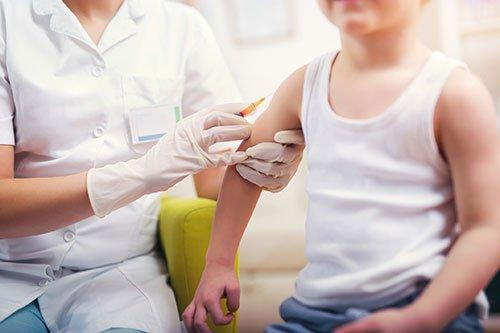 Rates of vaccinations are falling in the United States and other countries. The age of information means that parents have more access to blogs and natural health websites that tout the dangers of vaccines, leading to confusion about whether vaccines are useful, effective, and safe.
Rates of vaccinations are falling in the United States and other countries. The age of information means that parents have more access to blogs and natural health websites that tout the dangers of vaccines, leading to confusion about whether vaccines are useful, effective, and safe.
Immunizations help to prevent a number of severe diseases in children and adults. However, because vaccine rates are falling in many communities, some of the preventable illnesses are gaining strength once again.
If you are concerned about whether or not to vaccinate your child, be sure you know about common misconceptions that have developed about immunizations.
If I Don't Vaccinate My Child, Nobody Else Is Affected
Vaccines are so effective in preventing disease because they keep serious pathogens from gaining a toehold in the community. Imagine the defense against illness as chain mail armor. Each immunized link in the chain mail makes the community more impervious to infection. When fewer and fewer children have vaccines, there are gaps in the defense.
This protection is known as herd immunity. What it means is that the immunization of the group helps to protect the most vulnerable people who cannot have vaccines. Newborn babies, for example, are too young to receive vaccines, so they rely on the collective protection of everyone else's vaccination. Contagious diseases like measles need a vaccine rate of 95% for the community to be protected.
If someone who has not received a vaccine gets exposure to a disease, they can carry that illness to others. Also, some people have stronger immunity than others, even with a vaccine, so when everyone has a vaccine, there is less chance of illness collectively.
Nutrition And Hygiene Are Better At Fighting Disease
While healthy eating is important and washing your hands can prevent the spread of germs, vaccines are still the most effective method in preventing diseases like measles and polio. Diseases like measles used to have a wax and wane pattern, with large epidemics sweeping through, followed by periods of wellness.
When the measles vaccine was released, however, this pattern was broken. Incidences of measles simply continued to wane, without real resurgence. In fact, only recently has measles been on the rise, and it is due in large part to reduced vaccination rates among communities.
Many parents feel that a diet high in unprocessed whole foods will provide the best immunity. Nutritious foods are essential to health, but it's important to remember that societies past had much healthier diets (with less refined sugars and fats), but still suffered from crippling and deadly illness.
Vaccine Side Effects Are Worse Than The Diseases They Prevent
Many parents refrain from vaccinating because they are concerned about side effects. Your doctor will provide you with a handout warning of potential side effects, but serious side effects are uncommon. Severe side effects that cause handicap or death are so rare with most vaccines that it is hard to attribute the vaccine to the cause of the condition.
However, there always risks. It's important to remember that most modern parents and children have no memory of what it is like to have measles, polio, or diphtheria. The side effects and permanent damage from these diseases are much more likely and much more devastating than a low-risk vaccine.
The only reason why your child has a low chance of developing these diseases is that vaccinations have reduced the risk of disease to the community. If your child does have a severe allergic reaction or negative response to a vaccine, you can rely on the immunity of those individuals who are able to receive vaccines without risk.
For more information about the safety and effectiveness of vaccines, contact us at Valley Pediatric Clinic.
